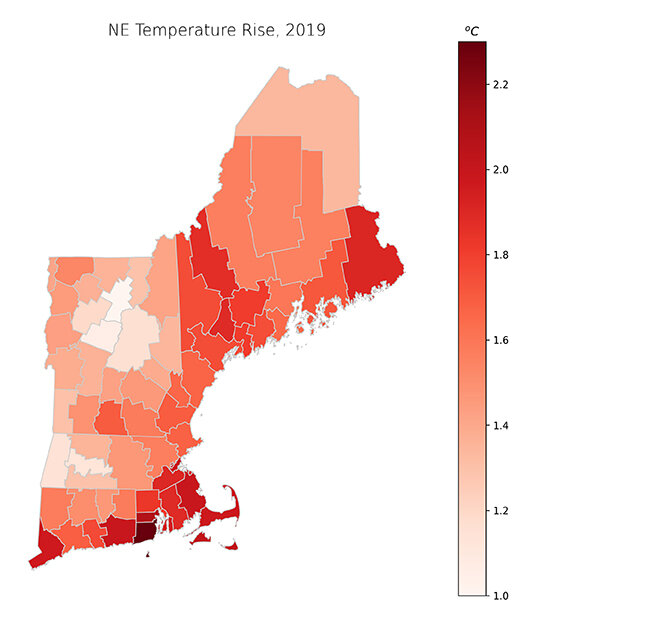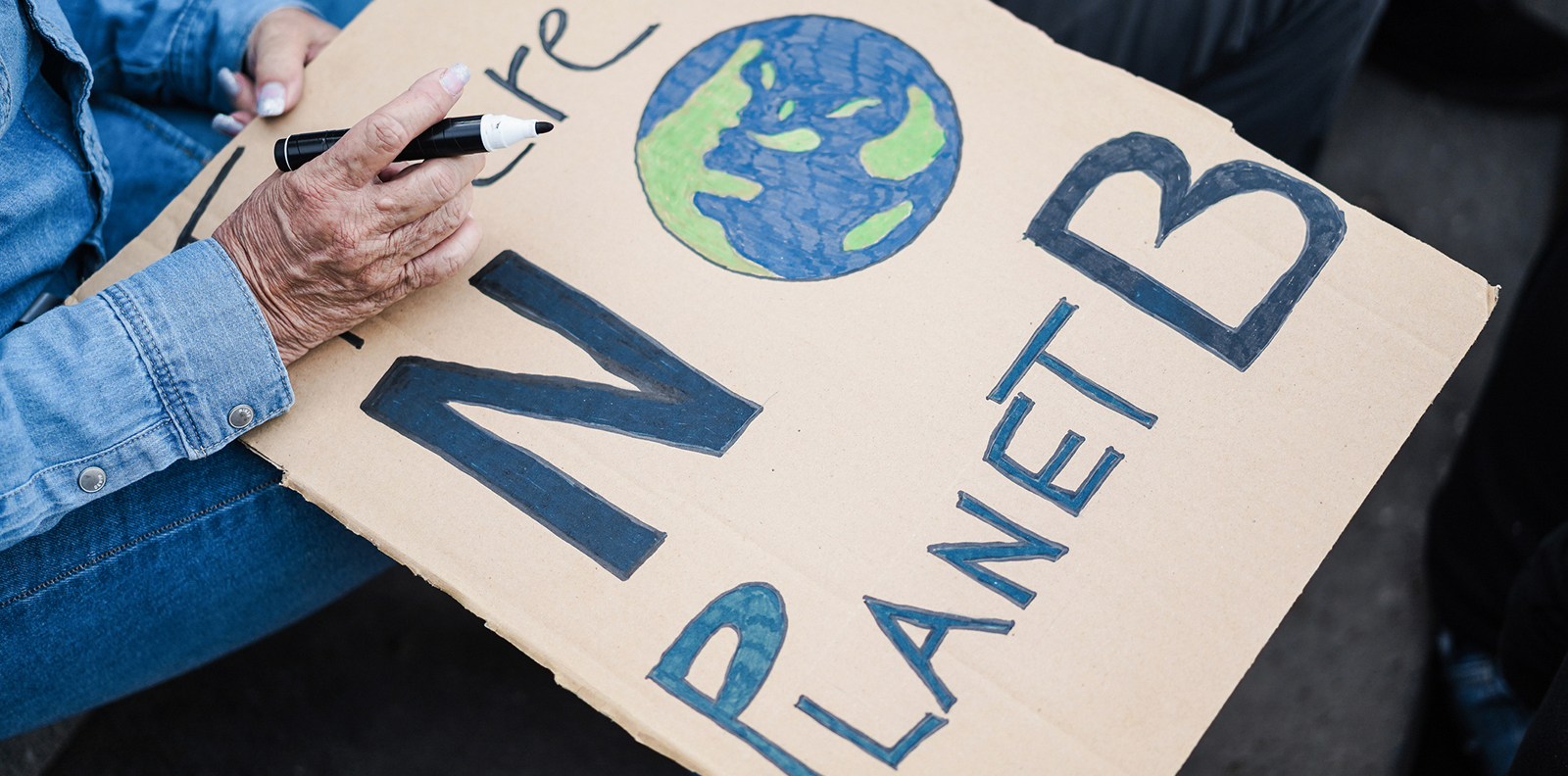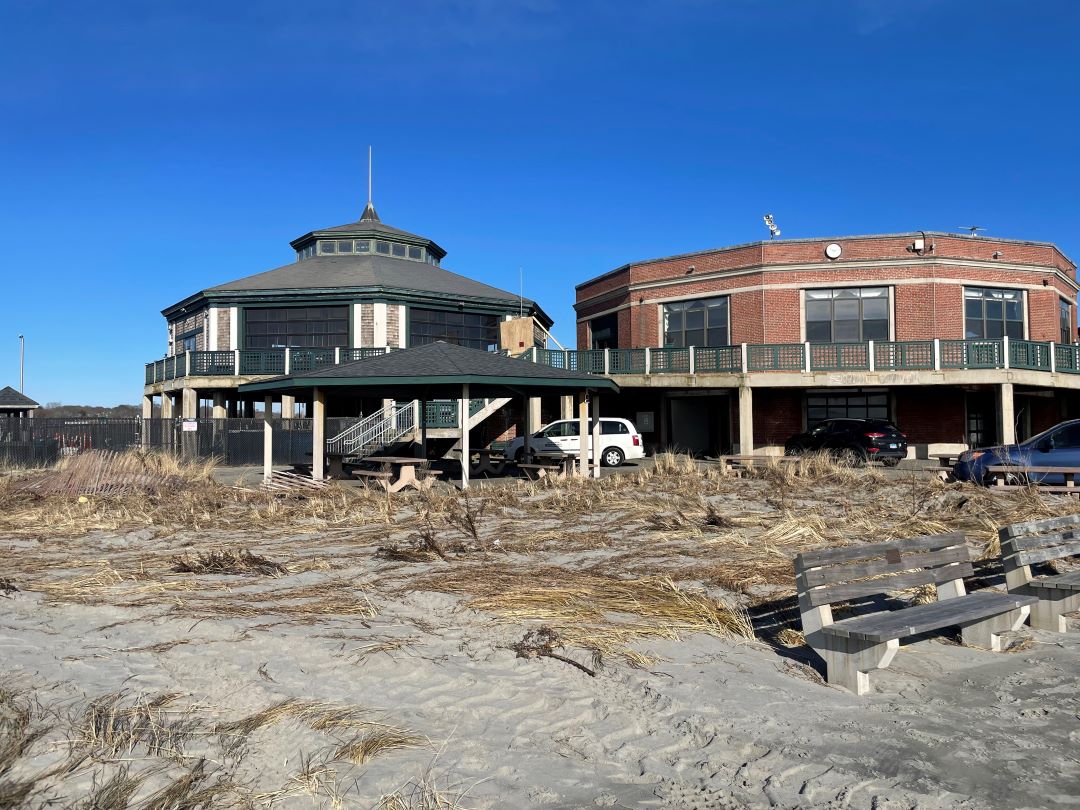Rhode Island Leads Way When it Comes to Climate Warming
August 24, 2020
Rhode Island is the first state in the contiguous United States whose average temperature has risen above 2 degrees Celsius (3.6 degrees Fahrenheit) during the past 130 years, with Washington County experiencing the highest temperature rise in New England at 2.2 degrees (4 F) and Kent County right behind at 2.1 degrees (3.8 F).
Newport County has experienced the ninth-highest temperature rise in New England, at 2 degrees, according to data compiled by The Washington Post.
While 2 degrees doesn’t seem like much, the last time the planet was 2 degrees warmer, the oceans were 16 feet higher. If that were to occur again, most of the Ocean State could be underwater.

Nearly every country in the world signed the Paris climate accord and agreed to holding the increase in the global average temperature to below 2 degrees Celsius and pursuing efforts to limit the temperature increase to 1.5 degrees (2.7 F). (On June 1, 2017, President Trump announced that the United States would cease all participation in the 2015 Paris Agreement; the earliest possible withdrawal date by the United States can’t be before Nov. 4, one day after the 2020 presidential election.)
Is the difference between 1.5 degrees and 2 degrees significant?
The staff at Carbon Brief has compiled a graphic that the United Kingdom-based organization described as “a weather forecast from hell.”
During Paris Agreement negotiations, policymakers set the target of less than 2 degrees because they thought it was achievable. With coastal states such as Rhode Island leading the way, where the temperature rise is already above 2 degrees, that reasoning is now beginning to seem unbearably naive.
The window for staying below 1.5 degrees is rapidly closing, according to many climate experts. At the present rate of worldwide greenhouse-gas emissions, it will only take four years to warm the world’s climate by 1.5 degrees.
Rhode Island is already well beyond that now.
It’s also becoming clear that a 2-degree increase isn’t a safe threshold. By delaying the necessary work of decarbonization, we are consigning millions of people to more heat waves, more crop losses, more water shortages, irreversible damage to ecosystems, more inundated coastal cities, more disease, more economic devastation, and more conflict over resources.
Roger Warburton, Ph.D., is a Newport, R.I., resident.



